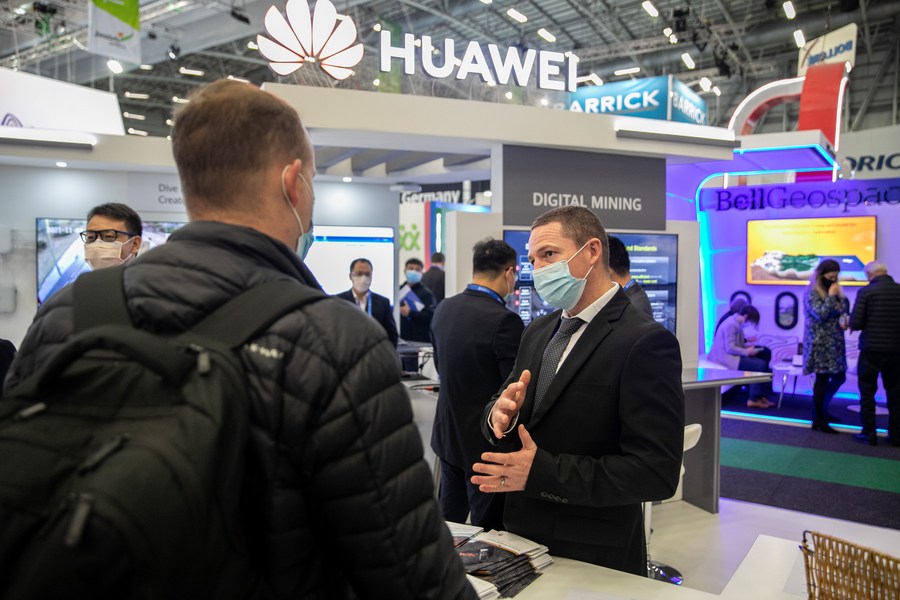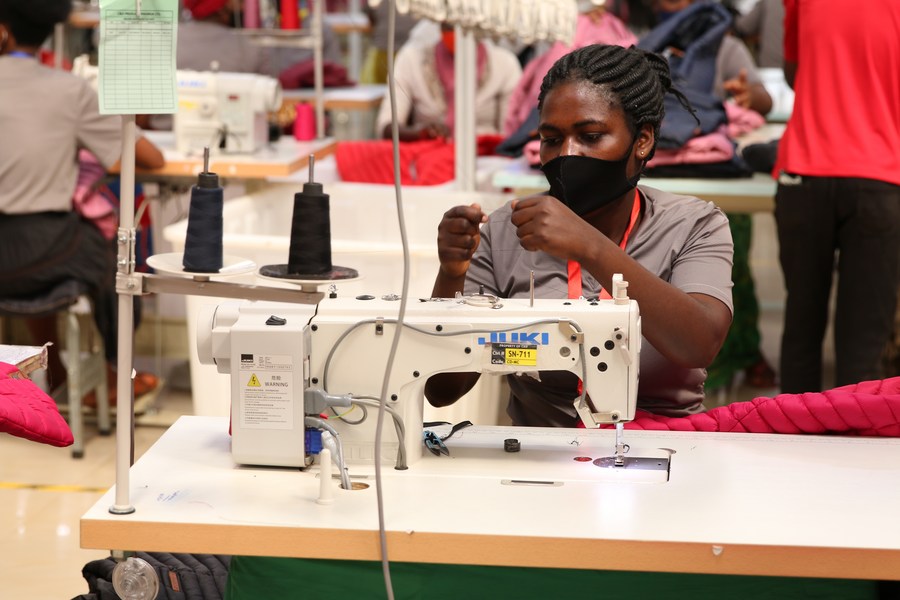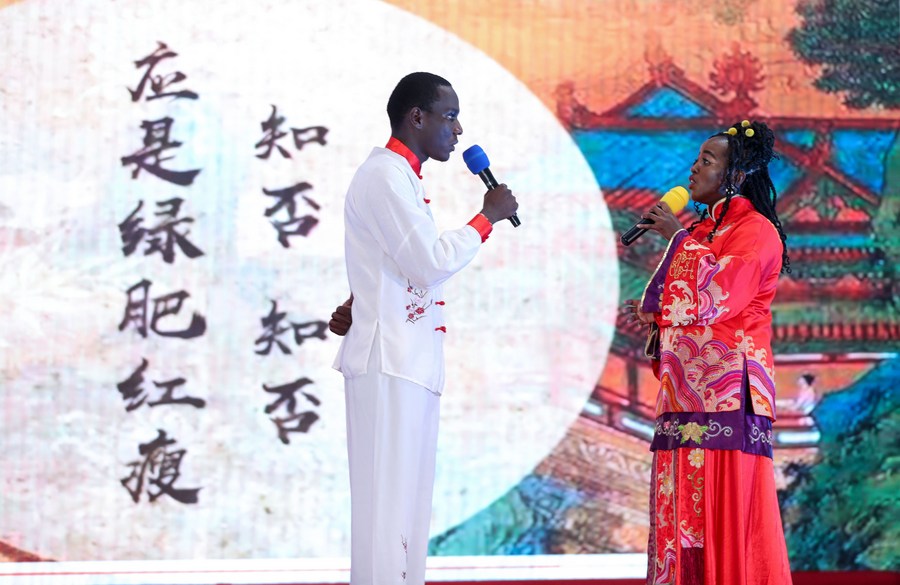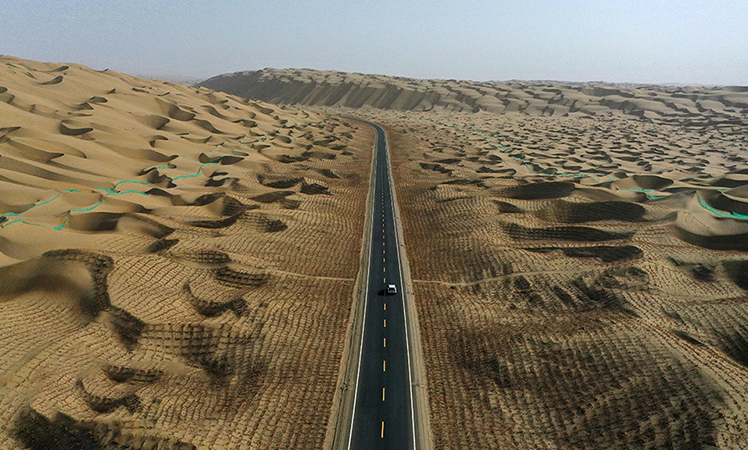Young Africans see China as most influential country
* The African Youth Survey 2022, which was conducted in 15 African countries, showed that 76 percent of young people view China's influence as positive while 77 percent see China as the foreign country with most influence on their continent.
* Since the founding of the Forum on China-Africa Cooperation in 2000, Chinese companies have built or upgraded more than 10,000 km of railways and nearly 100,000 km of highways across Africa, and created a total of over 4.5 million jobs, according to official data released last November.
* In addition to studying in China, some young Africans are seizing business opportunities offered by China's digital trade, which has been booming in recent years.
NAIROBI, June 29 (Xinhua) -- Young Africans consider China as the country wielding most influence on their continent, according to the "African Youth Survey 2022" commissioned by South Africa's Ichikowitz Foundation earlier this month.
The survey, which was conducted in 15 African countries, showed that 76 percent of young people view China's influence as positive while 77 percent see China as the foreign country with most influence on their continent.
Ivor Ichikowitz, chairperson of the Ichikowitz Foundation, told Xinhua that the African youth have faith in the future of the relations between China and Africa.

Members of the Chinese Medical Team (CMT) pose with children at the entrance of the paediatric ward of Mzuzu Central Hospital in Mzuzu, Malawi, June 1, 2022. (Chinese Medical Team in Malawi/Handout via Xinhua)
FANS OF CHINESE PRODUCTS
Chinese products, ranging from clothes and plastic products to home appliances, can be found on the shelves of street stores as well as large shopping malls across Africa.
"I have many Chinese-made household appliances and a washing machine, they have helped me a lot," says Kenyan actress Fridah Mure, adding that Chinese products are both affordable and made with high-quality standards.
In recent years, young Africans have been attracted not only to Chinese-made necessities, but also to electronic products from Chinese manufacturers such as Huawei and OPPO, and to applications such as TikTok.
"China is the manufacturing center of the world. Most of the products we consume would come from China, both in terms of technology and other areas you know," Martin Githinji, a 30-year-old Kenyan social media content creator, told Xinhua at the launch of the newest Tecno smartphones in Kenya's capital Nairobi on June 20.
According to Githinji, Chinese manufacturers have won many consumers in his country as they offer a wide range of basic products at different prices.
Tecno is a brand of Chinese smartphone maker Transsion Holdings, which dominated the African smartphone market with a combined unit share of 47.9 percent in the fourth quarter of 2021.
Chinese companies, like Tecno, have also transferred much of their technology to Kenya, said Anthony Brian Otieno, product manager of Tecno. "We are now even able to assemble some of our devices here."

People talk at the exhibition stand of Chinese telecom giant Huawei during Investing in African Mining Indaba, an African mining investment event, in Cape Town, South Africa, May 9, 2022. (Xinhua/Lyu Tianran)
MORE JOBS CREATED FOR AFRICAN YOUTH
Since the founding of the Forum on China-Africa Cooperation in 2000, Chinese companies have built or upgraded more than 10,000 km of railways and nearly 100,000 km of highways across Africa, and created a total of over 4.5 million jobs, according to official data released last November.
These projects, including roads, ports, and digital connectivity, have boosted African countries' development and created many jobs for the population, especially the young people.
The Chinese-built Mombasa-Nairobi Standard Gauge Railway (SGR) has just celebrated its fifth anniversary of safe operation. In addition to its speed, convenience and affordability, the SGR, which connects the country's capital to its busiest Mombasa port, offers young people opportunities to develop their careers.
In particular, female locomotive drivers admitted that their lives had been transformed after securing employment with the SGR commuter service.
"I was able to take the speed railway in China and see how they operate the railway industry," said Conciliar Owire, who became one of the first batch of female locomotive drivers after the SGR began operation in 2017.
Owire, who was promoted to be a senior superintendent of the Africa Star Railway Operation Company that runs the SGR, also told Xinhua that she hopes to implement what she saw in China to the railway network in her country.

Passengers are seen at Nairobi station of Mombasa-Nairobi Standard Gauge Railway (SGR) in Nairobi, capital of Kenya, Nov. 17, 2021. (Xinhua/Dong Jianghui)
In Cameroon, as of September last year, a total of 5,000 jobs and a 15-fold increase in customs revenue were generated by Kribi deep-sea port, the first deep-water port in Cameroon, said Alain Patrick Mpila Ayissi, director of planning and environment at the port.
The port, established in March 2018 and built by China Harbour Engineering Company, is jointly operated by China, France and Cameroon, with its second phase to be completed in 2023.
"Cameroon is on the fast track of development, and China is accompanying it," said Mpila Ayissi.
Despite the COVID-19 pandemic, China-Africa cooperation remains resilient and dynamic. According to the General Administration of Customs of China, the total bilateral trade between China and Africa reached an all-time high in 2021 to 254.3 billion U.S. dollars, up 35.3 percent year-on-year, among which, Africa exported 105.9 billion dollars of goods to China, up 43.7 percent year-on-year.

Photo taken on March 15, 2022 shows trucks transporting containers at Kribi deep-sea port, Kribi, Cameroon. (Photo by Kepseu/Xinhua)
CULTIVATING NEXT-GENERATION TALENTS FOR AFRICA
By 2030, approximately 42 percent of the world's youth will be African, according to the Ichikowitz Foundation's report.
China, a country that strongly supports the development of education on the African continent, has been building educational institutions and sharing its experience.
For instance, Tanzania and China launched on June 15 a joint project aimed at developing new vocational standards in the East African country.
The National Occupational Standards Review and Development Project will help to build a large pool of skilled workers and ensure that vocational education graduates meet the needs of the international market and increase the country's industrialization, said Adolf Rutayuga, executive secretary of Tanzania's National Council for Technical and Vocational Education and Training.

An employee works in Chinese garment factory Pink Mango C&D in Kigali, Rwanda, Jan. 28, 2022. (Photo by Huang Wanqing/Xinhua)
A total of 43 Chinese vocational colleges in China will participate in the first phase of the project, involving 54 different levels of vocational standards, said Jiang Yilin, Chinese secretary-general of the China-Africa Vocational Education Alliance.
Meanwhile, with the development of trade and cultural exchanges between Africa and China, the number of African students studying at Chinese universities has also increased in recent years.
According to pre-pandemic data released by China's Ministry of Education, more than 81,000 African students studied in China in 2018, accounting for 16.5 percent of the country's foreign students.

Contestants take part in the 21st Chinese language proficiency competition for foreign college students in the Kenya Division at the University of Nairobi in Nairobi, Kenya, June 24, 2022. (Xinhua/Long Lei)
Some African students have learned more about China through their studies and travels in the Asian country, and have been inspired by China's remarkable growth and poverty eradication in the past four decades.
For Joseph Olivier Mendo'o, a Cameroonian PhD student at Peking University, young people can play an important role in fostering dialogue between China and African countries and bridging the understanding gap.
Since he came to China five years ago, Mendo'o has traveled to many regions of the country, including a visit to Xingxian County, Shanxi province, where he learned about the poverty reduction efforts in the county.
"China's economic achievement has brought not only opportunities but also confidence to developing countries," said Passy Charles Riseph, a student from the Republic of the Congo at Shanxi University, who is determined to go back to his country and put his knowledge to use.
In addition to studying in China, some young Africans are seizing business opportunities offered by China's digital trade, which has been booming in recent years.
"The future of digital trade is a new form of economic and trade cooperation between China and Africa," said Zimbabwean student Tungamirai Eric Mupona, who attended some livestream e-commerce events in China.
Digital trade can help more distinctive and high-quality African products penetrate the Chinese and the global market, he said.
"African youth have great enthusiasm for cross-border and livestream e-commerce," Mupona said, adding that he hopes more African and Chinese young people will participate in promoting economic, trade and cultural exchanges between the two sides.
Photos
Related Stories
- Philippines' Davao City eyes more Chinese investments in agriculture, manufacturing
- Foreign companies eye opportunities in China with continued investment
- First China-Horn of Africa peace conference concludes with call for realizing shared aspirations
- Interview: Dutch tech company Philips pledges long-term commitment to Chinese market
- Qingdao summit sees 99 foreign-investment projects inked
Copyright © 2022 People's Daily Online. All Rights Reserved.









